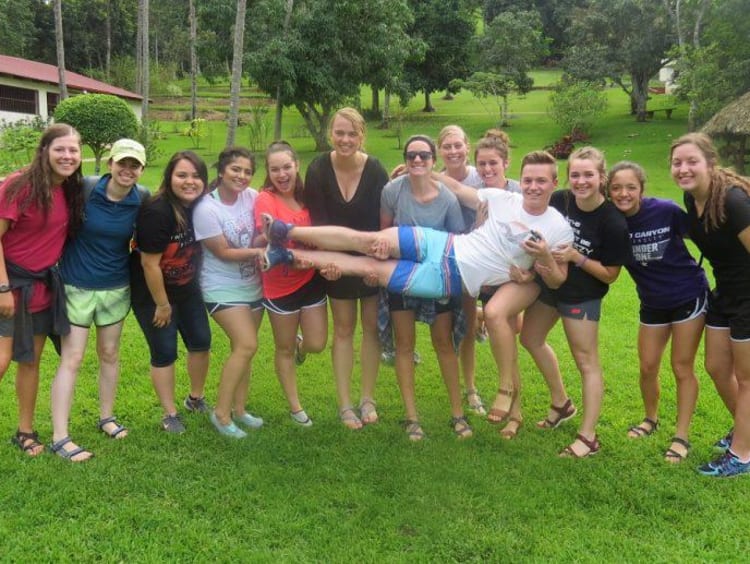Honors Mission Trip to the Dominican Republic

“Until we embrace our mutual brokenness, our work with low-income people is likely to do more harm than good.” (Steve Corbett, “When Helping Hurts”)
Grand Canyon University honors students got to experience a unique cultural paradigm in the Dominican Republic, unrivaled by most nations, with lively and kind people. Jarabacoa’s lush landscapes are constantly assailed by torrential rain, humid climate and the liveliest of people.
Poverty Simulator
One night during the trip, the students were all put in a room. We were going to do a “poverty simulator,” a role-playing exercise that would combat our mental doubts. During our simulator, I heard a timbre of cascading voices:
“I’ll work for 50% less than the other guy.”
“She paid me less because I looked at her weird!”
“I’m going to school.”
“Just drop this package, and I’ll pay you.”
“Did you eat yet?”
“Wait, where is…?”
“I don’t pay you for sitting around.”
The poverty simulator is part satire, part game and part social commentary – in the windowless church, nervous, sweaty students are at different stations huddling and working in confounding and monotonous mini-games to gain food to pay fake rent with fake families. Oddly enough, some groups not only survived, but they also thrived (students even prayed for supplication and did relatively well).
Jarabacoa nights like this, after all the hubbub in the morning, were meant for mental digestion from the crazy day – challenging our perceptions and mental chokeholds of an American worldview. Those cicadae filled nights made us analyze our morning experiences.
A Vocational Mission Trip
As a vocational mission trip, students would wake up around 6 am and meditate with worship and shared ministry focus. Most of the GCU honors students who came actually were STEM students, such as biochemistry and nursing, who wanted to use this experience to enhance how they saw the medical field and react outward. In the mornings, my role was to visit each site and take videos and pictures of students.
They built community through general team-oriented activities. Whether kayaking or hiking down a waterfall, the true community formed was through relationships. Student International allowed room for students to practice their passion and grow on their own and encourage other local students to do the same.
In my conversations with local Dominicans (with my broken Spanish), they were kind, friendly and lively – they enlivened our stay in the Dominican Republic. They certainly goaded our hearts and broke down our cultural walls. Life in Jarabacoa, as diverse as it was, belied on the key idea of family and we felt akin to those in the faith who loved and worked with Dominicans.
Students who went on the honors mission trip not only challenged their cultural worldview, but also stretched their faith.
The Honors College provides honors students with enhanced curriculum and beneficial privileges, including exclusive mission trips. To learn more, visit our website or contact us using the Request More Information button on this page.
The views and opinions expressed in this article are those of the author’s and do not necessarily reflect the official policy or position of Grand Canyon University. Any sources cited were accurate as of the publish date.


